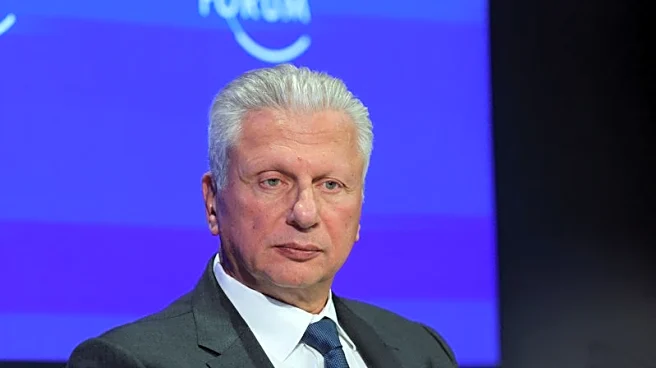What's Happening?
Pinterest has responded to user concerns about the prevalence of AI-generated content on its platform by introducing new tools that allow users to limit the amount of such content in their feeds. The company
has faced criticism from users and media alike over the increase in 'AI slop,' which refers to the overwhelming presence of AI-generated imagery. To address this, Pinterest has made its GenAI content labels more prominent and introduced settings that enable users to restrict AI content in specific categories such as beauty, art, fashion, and home décor. These tools are accessible through the app's 'Settings' menu under 'Refine your recommendations.' Users can also provide feedback on AI imagery they encounter, helping Pinterest refine its approach. The new controls are initially available on the website and Android, with plans to roll them out to iOS users soon.
Why It's Important?
The introduction of these controls is significant as it addresses growing concerns about the impact of AI-generated content on user experience and Pinterest's reputation. With GenAI content reportedly making up 57% of online material, the ability to limit its presence is crucial for maintaining user engagement and satisfaction. By empowering users to personalize their feeds, Pinterest aims to strike a balance between human creativity and AI innovation, ensuring that the platform remains a source of inspiration rather than frustration. This move could help Pinterest retain its user base and protect its bottom line, as unchecked AI content could potentially damage its reputation and financial performance.
What's Next?
Pinterest plans to expand the categories available for AI content restriction based on user feedback, allowing for more personalized control over feed content. As the tools are rolled out to iOS users, Pinterest will likely monitor user engagement and satisfaction to assess the effectiveness of these changes. The company may also continue to refine its AI detection systems and labeling practices to ensure users can easily identify and manage AI-generated content. Stakeholders, including advertisers and content creators, will be watching closely to see how these changes impact user behavior and engagement on the platform.
Beyond the Headlines
The broader implications of Pinterest's move highlight the ongoing debate about the role of AI in content creation and consumption. As AI-generated content becomes more prevalent, platforms like Pinterest must navigate the ethical and practical challenges of integrating AI while preserving the authenticity and creativity that users value. This development may prompt other social media platforms to consider similar measures, potentially leading to industry-wide changes in how AI content is managed and presented.










